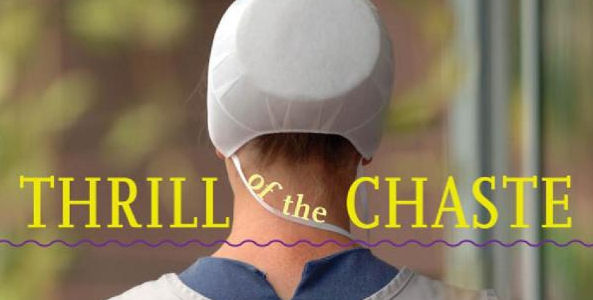Growing up in Mechanicsburg, Pennsylvania, Valerie Weaver-Zercher was inspired by her Amish neighbors and fascinated by public attraction to their culture. Numerous publications, documentaries and novels have been written about the Anabaptist way of life. But, Amish romance novels caught Weaver-Zercher’s attention when she realized how quickly they flew off the shelves.
With such a complexity between romance and an unusual culture, Weaver-Zercher, author of “Thrill of the Chaste: The Allure of Amish Romance Novels,” was intrigued to search for a reason why this type of writing was so successful.
In a recent interview, she described how the top three Amish romance authors sold, among them, more than 24 million books and, on Thursday, Oct. 22, Weaver-Zercher discusses this concept in “Collecting Data While You Pass the Jell-O Salad: Researching Amish Fiction at Potlucks and Reunions” in which she focuses on how the attraction to Amish romance novels illuminates the curiosity all humans have regarding love in a culture other than their own. Weaver-Zercher’s talk is free and takes place at 7:30 in the Bucher Meetinghouse at Elizabethtown College’s Young Center for Anabaptist and Pietist Studies.
I always think that academic research intersects with daily life.”
Recipient of the Young Center’s Dale Brown Book Award, Weaver-Zercher started her research by talking to friends to get a better understanding on the attraction to Amish romance novels. Using the lens of cultural theory, her publication is an academic and non-fiction look into what makes the novels so captivating.
“It was really exciting because no one had made these connections before,” said Weaver-Zercher about her researching process. “No one discovered this before.”
The researcher talked to women in local book clubs to start shaping her thesis and data for her publication. Her search for answers lead her to travel to Amish book stores and Amish bookmobiles to see who picked up the novels and why. Her research even took her to Illinois to study Amish culture firsthand and to see if the way of Amish life was represented truthfully in a romance novel.
From interviews with the Amish romance book marketers and reading theories such as evangelical reading habits, she pieced together observations that showed how readers are drawn to Amish romance genre. Written and read mostly, but not exclusively, by evangelical Christian women, she said, the novels serve as a way to fulfill their curiosity on life and love affairs in the Amish society.
“It was a process of discovery,” she explained. “There was a real sense in where I was taking other people’s work and then asking, where does this apply?”
In her lecture, she talks about the steps she used to complete the research and the ultimate conclusion she came to at the end of the journey.
“I always think that academic research intersects with daily life,” said Weaver-Zercher. “In any field of study, the possibility that your research is overlapping with who you are as a person is truly great.
As a managing editor of trade books for Herald Press her research has been put on the back burner.
And after a year and a half of research and constant talking with her husband, also a scholar of Amish, Weaver-Zercher’s children got, “a little tired of Amish fiction at the dinner table.” Since since her book was published, however, her academic findings have appeared in “The Wall Street Journal,” the “Chicago Tribune,” the “Los Angeles Review of Books” and “Christian Century.”
“It was gratifying to reach venues that I wouldn’t have expected to be published in,” said Weaver-Zercher. “It shows the level of interest in the Amish and the interest in the question of why we are interested in the first place.”


